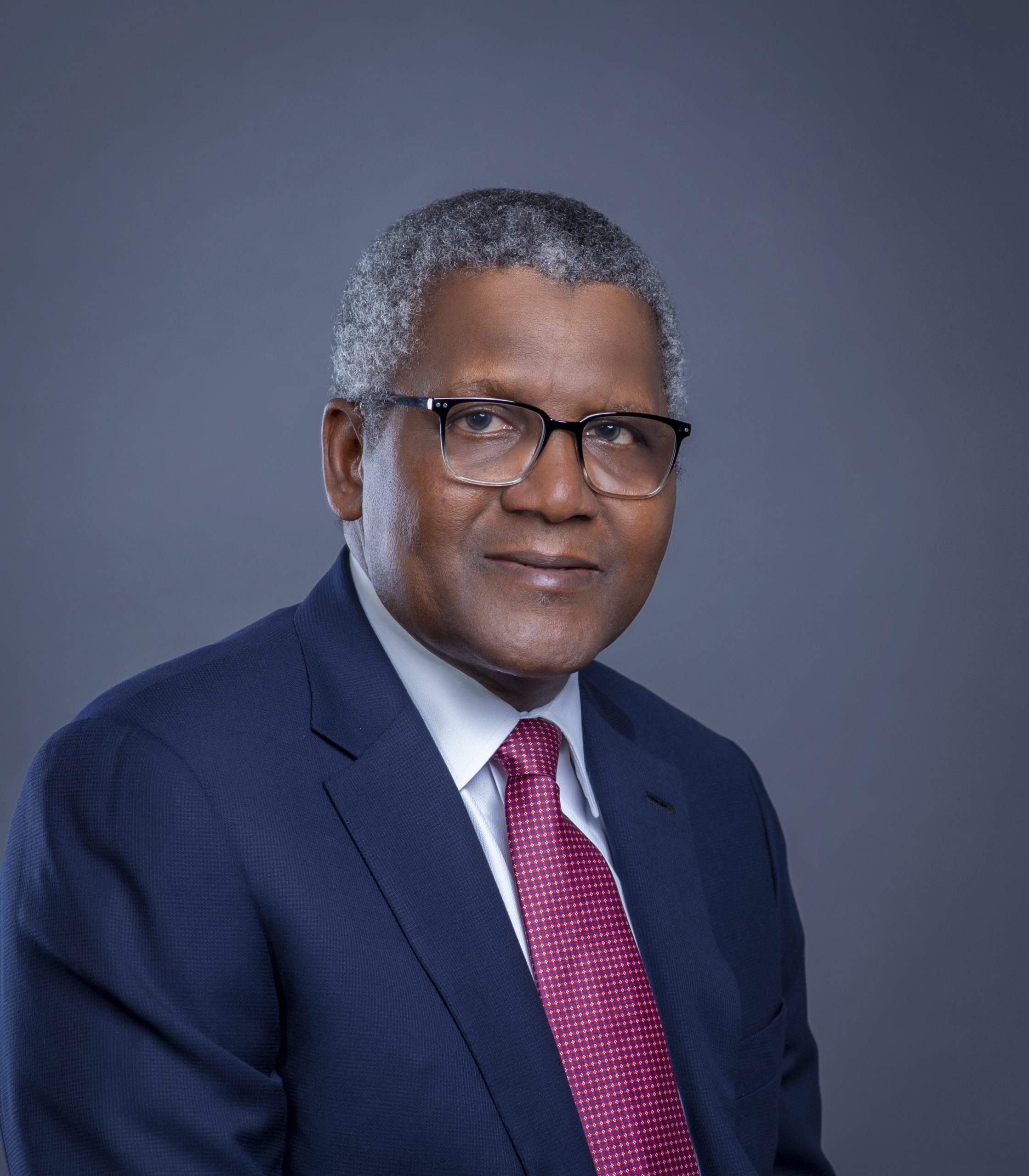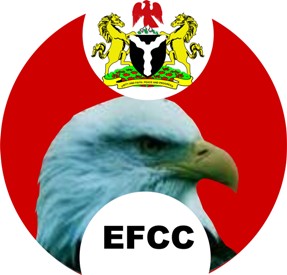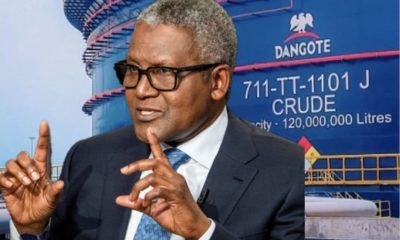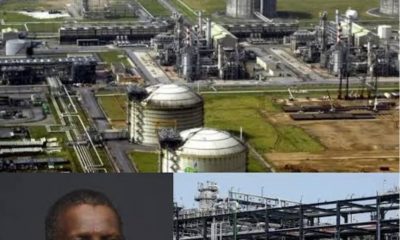Business
Dangote Raid: Is this an end to sacred cows in the Nigerian business community?* – Dumebi Ifeanyi

*Dangote Raid: Is this an end to sacred cows in the Nigerian business community?*
– Dumebi Ifeanyi
DANGOTE – When the Nigerian President, Bola Ahmed Tinubu, was sworn in on May 29, 2023, his first policy intervention in Nigeria’s opaque, corruption-laden oil sector surprised everyone. “Subsidy is gone!” Tinubu exclaimed during his inaugural address at the Eagles Square, Abuja, shortly after he was sworn in as the 16th President of Nigeria. He added that there was no provision for subsidy in the national budget from June 2023 and, therefore, it stood removed.
If international investors had any doubt about Tinubu’s commitment to combat Nigeria’s hydra-headed corruption and sanitise the nation’s economic policy space, the declaration indeed put paid to it, and signalled his intent from the start.
Not relenting in its reform drive, barely a month after the subsidy removal declaration, the Tinubu government through the Central Bank of Nigeria (CBN) announced the unification of all segments of the forex market collapsing all windows into one. The bank said it was part of a series of immediate changes to operations in the Nigerian Foreign Exchange (FX) Market, in a bid to improve liquidity and Naira stability.
In its reaction to the raft of policy reforms, the International Monetary Fund (IMF) applauded the economic reforms, noting that the measures were a pathway towards stronger and inclusive growth.
A former President of the World Bank, David Malpass, also lauded the economic strategies employed by Tinubu since assuming office. In a tweet, Malpass declared: “Glad to see @officialABAT taking concrete steps to scrap Nigeria’s harmful government subsidies and multiple exchange rates. These are important steps toward currency stability, lower inflation, and reduced corruption in Africa’s most populous country.”
As in all reforms, the ripple effects of the policies are being felt across boardrooms and on the streets, even as government remains optimistic about the long-term benefits.
While the reforms have shown the direction of the Tinubu government’s economic policy, they have also shown how audacious the president can be in driving reforms in the interest of Nigerian poor masses, without giving undue advantage to businesses considered “sacred cows”.
Tinubu himself made this known at a civic reception organised in his honour by the Lagos State Government at Lagos House, Marina, last October.
“I could afford to share the benefit by participating in the arbitrage, but God forbid! That’s not why you voted for me,” Tinubu said at the reception, defying the possible impact of the audacious moves on public sentiment.
“We have no choice,” he added, noting that it’s important to ensure the good use of available resources to unable government “re-engineer the effectiveness of the control and management of our resources in order to meet the obligations to Nigerians by political officeholders.”
*The Price of Audacity*
Last week, officials of the Economic and Financial Crimes Commission (EFCC) visited the office of Dangote Group headquarters as part of an investigation into forex allocation in the past years. Dangote Group is one of Africa’s largest companies headquartered in Nigeria’s economic capital, Lagos
The move was part of the ongoing investigation into the abuse of the foreign exchange allocations by former CBN governor, Godwin Emefiele, under whom reports said there were preferential foreign exchange allocations made in defiance of extant financial rules and regulations, and the CBN Act.
Already, Emefiele is being charged for gross violation of extant laws and abuse of office, according to a report by Jim Obazee, a Special Investigator appointed by President Bola Tinubu to scrutinise the activities of the CBN under the former CBN Governor. The Obazee report, as seen in national dailies, alleges that Emefiele employed surrogates to obtain shares in a new-generation bank during his tenure at the helm of the Central Bank of Nigeria (CBN). Other accusations in the alleged report against Emefiele encompass a spectrum of financial misdeeds, including unauthorised funding of 593 offshore bank accounts, fraudulent cash withdrawals from the CBN vault, gross financial misconduct involving the former governor and his Deputy Governors, and substantial fixed deposit holdings amounting to £543.4 million.
He is also accused of manipulations of the Naira exchange rate, irregularities in the e-Naira project, unauthorised printing of new currency denominations, and substantial expenditures on dubious legal fees, fraudulent interventions, COVID-19-related irregularities, and misrepresentation of presidential approvals on various financial strategies.
Since the recent EFCC investigations began, there have been concerns on how the optics of such investigations could affect the business environment and possibly scare investors away.
But could a move to sanitise the system, curb corruption, instill discipline and provide level-playing fields for all businesses indeed jeopardize investment and scare away investors?
*Like BAT, Like MBS*
The fears around President Bola Ahmed Tinubu’s reforms are reminiscent of similar fears around a sweeping crackdown on corruption ordered by Crown Prince Mohammed bin Salman, also known as MBS, in Saudi Arabia.
When the reforms began, reports premised on scaremongering dominated media headlines as many wondered what the ripple effect of the reforms could mean for the Saudi economy.
But against the background of the reforms, outlined in the Kingdom’s Vision 2030 blueprint, Saudi Arabia is all set to become one of the most sought-after destinations for businesses in the Middle East and North Africa region.
44 international companies have already moved their regional headquarters to Saudi Arabia, according to official figures, with the prospects improving by the day. At least 80 firms have been issued regulatory clearances to establish their offices in the Kingdom, too.
In recent months, several noted firms, including PwC Middle East and Egypt’s Intella, inaugurated their regional headquarters in Saudi Arabia, indicating Saudi Arabia’s investment-friendly evolution.
In Nigeria, a PwC report on the impact of corruption shows that corruption in Nigeria could cost up to 37% of Gross Domestic Products (GDP) by 2030 if it is not dealt with immediately. This cost is equated to around $1,000 per person in 2014 and nearly $2,000 per person by 2030.
What can be deduced from the report is that Nigeria cannot attain economic development and inclusive growth that will lift millions of Nigerians out of poverty until corruption, especially in business environment, is fought head-on.
So far, with the probe of the CBN, cancellation of round-tripping through the abolition of multiple exchange windows, and removal of opaque, unsustainable fuel subsidies, the Tinubu government has shown a rare commitment to fighting corruption and ensuring a fair investment ecosystem—one that gives investors equal access and opportunities irrespective of where they come from. Without doubt, this has sent positive signals to investors and businesses (local and foreign) worried about Nigeria’s sometimes opaque systems.
To quote a Bloomberg publication on corruption, “Graft may always be with us, but governments can choose either to tolerate and even assist it, or to confront it vigorously.” Will the Tinubu government continue on this pathway of sanitising endemic corruption or will it bow to scaremongering by vested interests?
— Dumebi Ifeanyi is a senior public affairs analyst for Communications and Digital Engagement Nigeria
Bank
Alpha Morgan to Host 19th Economic Review Webinar

Alpha Morgan to Host 19th Economic Review Webinar
In an economy shaped by constant shifts, the edge often belongs to those with the right information.
On Wednesday, February 25, 2026, Alpha Morgan Bank will host the 19th edition of its Economic Review Webinar, a high-level thought leadership session designed to equip businesses, investors, and individuals with timely financial and economic insight.
The session, which will hold live on Zoom at 10:00am WAT and will feature economist Bismarck Rewane, who will examine the key signals influencing Nigeria’s economic direction in 2026, including policy trends, market movements, and global developments shaping the local landscape.
With a consistent track record of delivering clarity in uncertain times, the Alpha Morgan Economic Review continues to provide practical context for decision-making in a dynamic environment.
Registration for the 19th Alpha Morgan Economic Review is free and can be completed via https://bit.ly/registeramerseries19
It is a bi-monthly platform that is open to the public and is held virtually.
Visit www.alphamorganbank to know more.
Business
GTBank Launches Quick Airtime Loan at 2.95%

GTBank Launches Quick Airtime Loan at 2.95%
Guaranty Trust Bank Ltd (GTBank), the flagship banking franchise of GTCO Plc, Africa’s leading financial services group, today announced the launch of Quick Airtime Loan, an innovative digital solution that gives customers instant access to airtime when they run out of call credit and have limited funds in their bank accounts, ensuring customers can stay connected when it matters most.
In today’s always-on world, running out of airtime is more than a minor inconvenience. It can mean missed opportunities, disrupted plans, and lost connections, often at the very moment when funds are tight, and options are limited. Quick Airtime Loan was created to solve this problem, offering customers instant access to airtime on credit, directly from their bank. With Quick Airtime Loan, eligible GTBank customers can access from ₦100 and up to ₦10,000 by dialing *737*90#. Available across all major mobile networks in Nigeria, the service will soon expand to include data loans, further strengthening its proposition as a reliable on-demand platform.
For years, the airtime credit market has been dominated by Telcos, where charges for this service are at 15%. GTBank is now changing the narrative by offering a customer-centric, bank-led digital alternative priced at 2.95%. Built on transparency, convenience and affordability, Quick Airtime Loan has the potential to broaden access to airtime, deliver meaningful cost savings for millions of Nigerians, and redefine how financial services show up in everyday life, not just in banking moments.
Commenting on the product launch, Miriam Olusanya, Managing Director of Guaranty Trust Bank Ltd, said: “Quick Airtime Loan reflects GTBank’s continued focus on delivering digital solutions that are relevant, accessible, and built around real customer needs. The solution underscores the power of a connected financial ecosystem, combining GTBank’s digital reach and lending expertise with the capabilities of HabariPay to deliver a smooth, end-to-end experience. By leveraging unique strengths across the Group, we are able to accelerate innovation, strengthen execution, and deliver a more integrated customer experience across all our service channels.”
Importantly, Quick Airtime Loan highlights GTCO’s evolution as a fully diversified financial services group. Leveraging HabariPay’s Squad, the solution reinforces the Group’s ecosystem proposition by bringing together banking, payment technology, and digital channels to deliver intuitive, one-stop experiences for customers.
With this new product launch, Guaranty Trust Bank is extending its legacy of pioneering digital-first solutions that have redefined customer access to financial services across the industry, building on the proven strength of its widely adopted QuickCredit offering and the convenience of the Bank’s iconic *737# USSD Banking platform.
About Guaranty Trust Bank
Guaranty Trust Bank (GTBank) is the flagship banking franchise of GTCO Plc, a leading financial services group with a strong presence across Africa and the United Kingdom. The Bank is widely recognized for its leadership in digital banking, customer experience, and innovative financial solutions that deliver value to individuals, businesses, and communities.
About HabariPay
HabariPay is the payments fintech subsidiary of GTCO Plc, focused on enabling fast, secure, and accessible digital payments for individuals and businesses. By integrating payments and digital technology, HabariPay supports innovative services that make everyday financial interactions simpler and more seamless.
Enquiries:
GTCO
Group Corporate Communication
[email protected]
+234-1-2715227
www.gtcoplc.com
Business
BUA Group, AD Ports Group and MAIR Group Launch Strategic Plan for World-Class Sugar and Agro-Logistics Hub at Khalifa Port

BUA Group, AD Ports Group and MAIR Group Sign MoU to Explore Collaboration in Sugar Refining, Agro-Industrial Development, and Integrated Global Logistics Solutions
Abu Dhabi, UAE – Monday, 16th February 2026
BUA Group, AD Ports Group, and MAIR Group of Abu Dhabi today signed a strategic Memorandum of Understanding (MoU) to explore collaboration in sugar refining, agro-industrial development, and integrated global logistics solutions. The partnership aims to create a world-class platform that strengthens regional food security, supports industrial diversification, and reinforces Abu Dhabi’s position as a hub for trade and manufacturing.
The proposed collaboration will leverage BUA Group’s industrial and logistics expertise, Khalifa Port’s world-class infrastructure, and AD Ports Group’s operational experience. The initiative aligns with the objectives of the UAE Food Security Strategy 2051, which seeks to position the UAE as a global leader in sustainable food production and resilient supply chains. It also aligns with Nigeria’s food production- and export-oriented agricultural transformation agenda, focused on scaling domestic capacity, strengthening value addition, improving post-harvest logistics, and unlocking new markets for Nigerian produce across the Middle East, Asia, and beyond.

Photo Caption: L-R: Kabiru Rabiu, Group Executive Director, BUA Group; Cpt. Mohammed J. Al Shamisi, MD/Group CEO, AD Ports Group; Saif Al Mazrouei, CEO (Ports Cluster) AD Ports Group; Abdul Samad Rabiu, Founder/Executive Chairman, BUA Group; and Steve Green, Group CFO, MAIR Group
Through structured aggregation, processing, storage, and maritime export channels, the partnership is designed to reduce supply chain inefficiencies, enhance traceability and quality standards, and also create a predictable trade corridor between West Africa and the Gulf.
BUA Group—recognised as one of Africa’s largest and most diversified conglomerates, with major investments across sugar refining, food production, flour milling, cement manufacturing, and infrastructure- brings extensive industrial expertise and large-scale operational capability to the venture. MAIR Group will provide strategic support in developing integrated logistics and agro-industrial solutions, creating a seamless platform for production, storage, and distribution.
Abdul Samad Rabiu, Founder and Chairman of BUA Group, said:
“This MoU marks an important milestone in BUA’s international expansion and reflects our long-term vision of building globally competitive industrial platforms. Together with AD Ports Group and MAIR Group, we aim to develop sustainable food production and logistics solutions that strengthen regional supply chains and support the UAE’s Food Security Strategy 2051.”
He further added that, “This partnership represents not just a commercial arrangement but a strategic food corridor anchored on shared economic ambition, resilient infrastructure, and disciplined execution, reinforcing long-term food security objectives for both nations.”
A representative of MAIR Group added:
“This collaboration underscores our commitment to advancing strategic industries in Abu Dhabi and building integrated solutions that reinforce the UAE’s position as a global hub for trade, food security, and industrial excellence.”
A spokesperson from AD Ports Group commented:
“Our partnership with BUA Group and MAIR Group highlights Khalifa Port’s role as a catalyst for high-impact industrial investments. This initiative will enhance regional food security, strengthen global trade connectivity, and support Abu Dhabi’s economic diversification goals.”
This MoU marks a historic collaboration that combines world-class infrastructure, industrial expertise, and strategic vision, setting the stage for a sustainable and resilient food and logistics ecosystem that will benefit the UAE, the region, and global markets alike.
-

 celebrity radar - gossips6 months ago
celebrity radar - gossips6 months agoWhy Babangida’s Hilltop Home Became Nigeria’s Political “Mecca”
-

 society6 months ago
society6 months agoPower is a Loan, Not a Possession: The Sacred Duty of Planting People
-

 society5 months ago
society5 months agoReligion: Africa’s Oldest Weapon of Enslavement and the Forgotten Truth
-

 news6 months ago
news6 months agoTHE APPOINTMENT OF WASIU AYINDE BY THE FEDERAL GOVERNMENT AS AN AMBASSADOR SOUNDS EMBARRASSING










